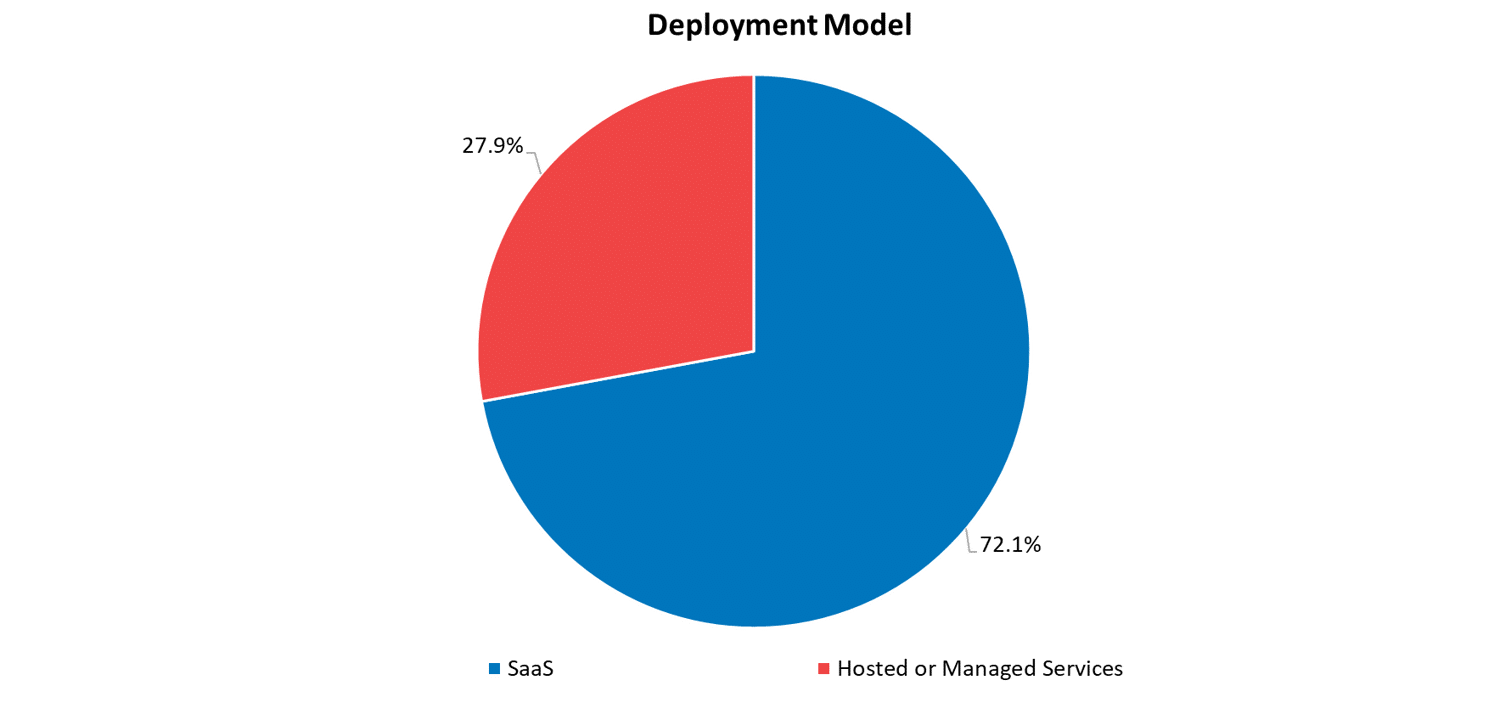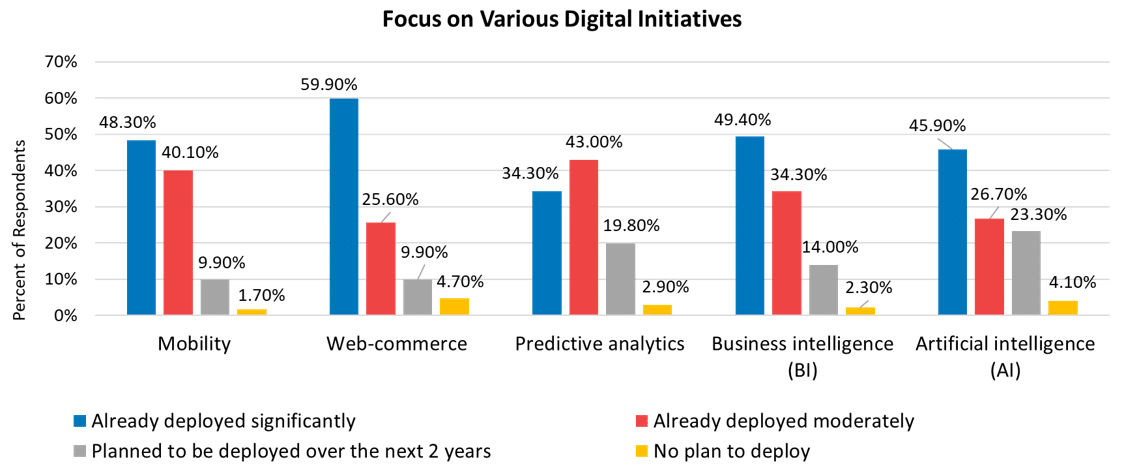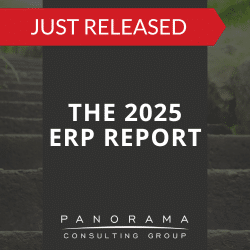- Business technology trends, like AI, cloud computing, and 5G, are reshaping enterprise operations.
- Generative AI is streamlining product design, supply chains, and predictive maintenance.
- Businesses are adopting AI-driven cybersecurity and Zero Trust models.
- Embedded finance integrates payment and financing options directly into ERP and procurement systems.
Digital transformation is about rethinking old operating models, to become more agile, innovative, and customer-focused. If you’re considering digital transformation, understanding the latest business and enterprise technology trends is essential.
Today, we’re exploring the most important business tech trends so you can navigate software selection based on evolving industry demands and operational priorities.
Top Business Technology Trends to Consider for Long-Term Success
1. From AI to Generative AI
Unlike traditional AI, which focuses on analyzing existing data patterns, generative AI creates new content, simulations, and predictions, making it a powerful tool for innovation.
For example, many manufacturing companies are using generative AI to automate product design iterations, optimize supply chain logistics, and generate predictive maintenance schedules. This shortens design cycle times, minimizes disruptions, and extends equipment lifespans.
According to our 2025 ERP Report, 95.9% of respondents said they deployed or plan to deploy AI at their organization:
The 2025 ERP Report
72.6% of respondents said they've already deployed AI at their organizations. Learn about AI adoption and other ERP trends by downloading our latest report.
2. Cyber Resilience in a Hyperconnected World
The proliferation of data and the expanding attack surface presented by remote work, IoT devices, and cloud computing have heightened the risk of cyber threats.
Organizations are investing in advanced cybersecurity measures, including AI-powered threat detection and response, to protect their assets and maintain customer trust. AI-driven threat detection and response systems leverage machine learning algorithms to learn from historical data, recognize patterns, and adapt to new tactics employed by cybercriminals.
Another advanced cybersecurity measure gaining momentum is Zero Trust architecture. Businesses are moving toward identity-based security models and away from traditional perimeter-based defenses. This ensures that business technology access is continuously verified, reducing the risk of insider threats and unauthorized access.
3. Cloud Computing 2.0
Cloud computing is no longer just about cost savings and basic scalability. Today, cloud computing is providing organizations with robust industry-specific functionalities.
Our ERP consultants recently helped a multinational manufacturer select an industry-specific cloud platform to replace a variety of disparate systems and improve the tracking of key metrics. Without this industry-specific functionality, the company might have resorted to software that required extensive customization to support complex manufacturing workflows and lacked real-time visibility into supply chain data.
Industry-specific cloud platforms are becoming essential for organizations that require pre-configured compliance controls, AI-driven predictive analytics tailored to their operations, and seamless integration with industry-standard third-party applications.
When it comes to different cloud models, our 2025 ERP Report revealed a strong preference for SaaS when compared to hosted or managed services. SaaS ERP solutions stand out by providing natively integrated, pre-configured industry templates and automated compliance updates, eliminating the need for manual system maintenance or version control.

4. The Evolution of 5G: Private Networks & Edge AI
As 5G networks expand, businesses are leveraging them for more than just connectivity, using advanced applications—such as private networks, edge computing, and real-time data analytics—to improve decision-making.
One major shift is the rise of private 5G networks, which offer organizations greater control over security, speed, and reliability. In this case, “private networks” refers to dedicated, enterprise-owned networks that operate independently from public carriers, allowing businesses to customize network performance, enhance security, and ensure reliable connectivity.
Another key development enhancing 5G’s potential is Edge AI, which brings artificial intelligence closer to where data is generated. The combination of 5G’s high-speed connectivity and AI-driven local processing is helping businesses unlock new levels of efficiency, automation, and customer experience.
5. Embedded Finance & the Expansion of B2B Fintech
Embedded finance—the seamless integration of financial services into non-financial platforms—is reshaping how businesses handle payments, lending, and financial operations. Originally a trend in consumer applications, embedded finance is now rapidly expanding into B2B transactions, supply chain financing, and ERP-integrated payment solutions.
For example, manufacturers and suppliers are integrating financing options directly into procurement platforms, allowing customers to access credit without leaving their ERP system.
In gathering data for our 2025 ERP Report, we asked organizations which initiatives they deployed as part of their project. Web-commerce led in significant deployment, outpacing more hyped technologies, like AI and predictive analytics, in terms of widespread implementation. This highlights the growing demand for seamless, integrated financial transactions.

Preparing for the Future of Enterprise Tech
The landscape of business and enterprise technology is one of constant change, with new trends emerging as quickly as old ones fade. To remain competitive, businesses must keep an eye on current trends while fostering a culture of innovation.
Please download our 2025 ERP Report to learn more. In the meantime, you can request a free ERP consultation below.













